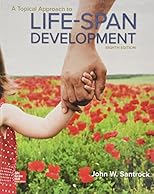|
NORTH CENTRAL TEXAS COLLEGE
COURSE SYLLABUS- Fall, 2016- Life Span
|
|
|
Course Title: Lifespan Growth & Development
|
|
Course Prefix & Number: PSYC2314
|
Section Number: 403
|
Semester: 161S
|
|
Semester Credit Hours: 3
|
Lecture Hours: 3
|
Lab Hours: 0
|
|
Course Description (NCTC Catalog):
Life-Span Growth and Development is a study of social, emotional, cognitive and physical factors and influences of a developing human from conception to death.
|
|
Course Prerequisite(s):
|
|
Required or Recommended Course Materials:

A Topical Approach to Lifespan Development Edition: 8- E Book Access card only
ISBN-13: 9780077861995
ISBN-10: 007786199X
Author: John Santrock Publisher: McGraw-Hill Education Published: October 2015
|
INSTRUCTOR INFORMATION
|
Name of Instructor:
|
Linda Olson, MEd. , L.P.C.
|
|
Campus/Office Location:
|
Campus Office for Contact: Rm. 336, Corinth
|
|
Telephone Number:
|
940-498-6424 (Email Preferred)
|
|
E-mail Address:
|
lolson@nctc.edu (Email preferred – CANVAS or NCTC)
|
GRADING CRITERIA
|
# of Graded Course Elements
|
Graded Course Elements
|
Percentage or Point Values
|
|
4
|
EXAMS (4 EXAMS – 3 OPEN RESOURCE; 1 CLOSED RESOURCE
|
400
|
|
2
|
JOURNAL OR PERIODICAL SUMMARY PAPER ON TOPICS RELATED TO TEXT CHAPTER TOPICS. (May use APA Style Format)- 1-2 pages in length.
|
200
|
|
1+
|
TEAM INTERACTIVE IN CLASS AND FLEX-TIME PROJECTS
|
200
|
|
1
|
ESSAY- WHAT I’VE LEARNED….REAL LIFE
|
100
|
|
1
|
APPLIED PSYCHOLOGY CRITERIA GRADE
|
100
|
|
|
GRADE SCALE:
90%-100%=A;80-89%=B;70-79%=C;60-69%=D;
BELOW 60%=F
Please refer to class syllabus for information regarding attendance, late work, makeup tests, and other relevant information.
|
|
STUDENT LEARNING OUTCOMES
|
|
At the successful completion of this course the student will be able to:
|
|
1.
|
Describe the stages of the developing person at different periods of the life span from birth to death.
|
|
2.
|
Discuss the social, political, economic, and cultural forces that affect the development process of the individual.
|
|
3.
|
Identify factors of responsible personal behavior with regard to issues such as sexual activity, substance abuse, marriage and parenting.
|
|
4.
|
Explain the biosocial, cognitive ad psychological influences throughout the lifespan as an ongoing set of processes, involving both continuity and change.
|
|
5.
|
Describe the different developmental perspectives of the major theories of development (i.e. cognitive, learning, humanistic and psychodynamic).
|
|
6.
|
Identify examples of some of the cultural and ethnic differences that influence development throughout the lifespan.
|
|
7.
|
Discuss the various causes or reasons for disturbances in the developmental process.
|
ATTENDANCE POLICY
ATTENDANCE POLICY: ATTENDENCE – CLASS ATTENDENCE IS IMPORTANT. FREQUENT ABSENCE WILL INFLUENCE YOUR GRADE.
TENTATIVE SCHEDULE
LECTURE/DISCUSSION SUBJECT MATTER:
GENERAL DESCRIPTION OF SUBJECT MATTER FOR EACH LECTURE/DISCUSSION
|
Topic Week
|
General Description of Subject Matter
|
|
1
|
Intro. To Life Span- Ch. 1
|
|
2
|
Biological Beginnings - Ch. 2
|
|
3
|
Physical Development and Biological Aging – Ch. 3
|
|
4
|
Health Ch. 4
Motor, Sensory, and Perceptual Development- Ch. 5
|
|
5
|
Cognitive Developmental Approaches- Ch. 6
|
|
6
|
Information Processing – Ch. 7
Intelligence – Ch. 8
|
|
7
|
Language Development- Ch. 9
|
|
8
|
Emotional Development & Attachment – Ch. 10
|
|
9
|
The Self, Identity, and Personality- Ch. 11
Gender & Sexuality – Ch. 12
|
|
10, 11
|
Moral Development, Values, and Religion Ch. - 13
|
|
12
|
Families – Ch. 14
|
|
13
|
Peers & the Sociocultural World- Ch. 15
|
|
14
|
Schools , Achievement, & Work – Ch. 16
Death , Dying, and Grieving – Ch. 17
|
|
Final Test Week
|
|
Last day to withdraw from a course with a “W” is November 3, 2016.
DISABILITY SERVICES (OSD)
The Office for Students with Disabilities (OSD) provides accommodations for students who have a documented disability. On the Corinth Campus, go to room 170 or call 940-498-6207. On the Gainesville Campus, go to room 110 or call 940-668-4209. Students on the Bowie, Graham, Flower Mound, and online campuses should call 940-668-4209.
North Central Texas College is on record as being committed to both the spirit and letter of federal equal opportunity legislation, including the Americans with Disabilities Act (ADA) of 1990, ADA Amendments Act of 2009, and Section 504 of the Rehabilitation Act of 1973 (P.L. 93-112). http://www.nctc.edu/StudentServices/SupportServices/Disabilityservices.aspx
CORE CURRICULUM FOUNDATIONAL COMPONENT AREA______________________________
o Communication
o Mathematics
o Life and Physical Science
o Language, Philosophy & Culture
o Creative Arts
o American History
o Government/Political Science
x Social and Behavioral Sciences
o Component Area Option
REQUIRED CORE OBJECTIVES
x Critical Thinking
x Communication
x Empirical and Quantitative
o Teamwork
o Personal Responsibility
x Social Responsibility
COURSE TYPE
o Academic General Education Course (from ACGM but not in NCTC Core)
x Academic NCTC Core Curriculum Course
o WECM Course
STUDENT HANDBOOK
Students are expected to follow all rules and regulations found in the student handbook. http://nctc.smartcatalogiq.com/en/2014-2015/Catalog/North-Central-Texas-College-Student-Handbook
|
Name of Chair/Coordinator:
|
Dr. Leslie Kelley
|
|
Office Location:
|
Corinth Campus, Room 336
|
|
Telephone Number:
|
940-498-6424 (Email preferred)
|
|
E-mail Address:
|
lkelley@nctc.edu
|
|
Name of Instructional Dean:
|
Dean Sara Alford
|
|
Office Location:
|
Flower Mound 200C
|
|
Telephone Number:
|
972-899-8414
|
|
E-mail Address:
|
salford@nctc.edu
|